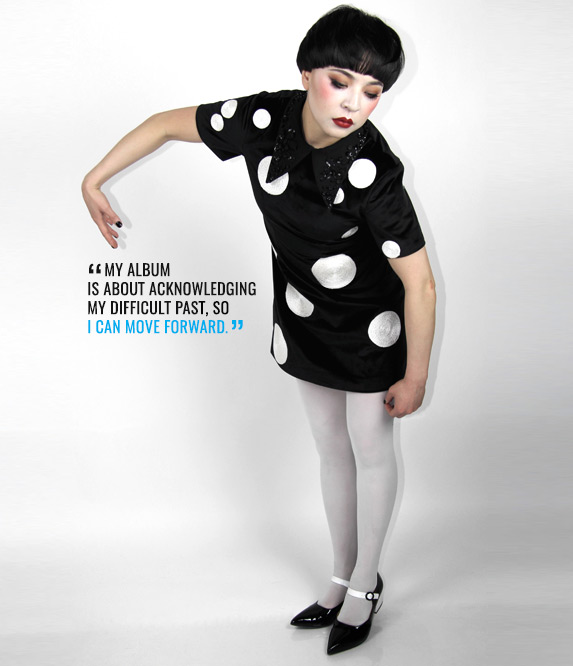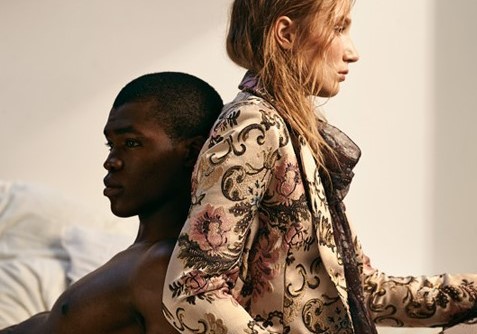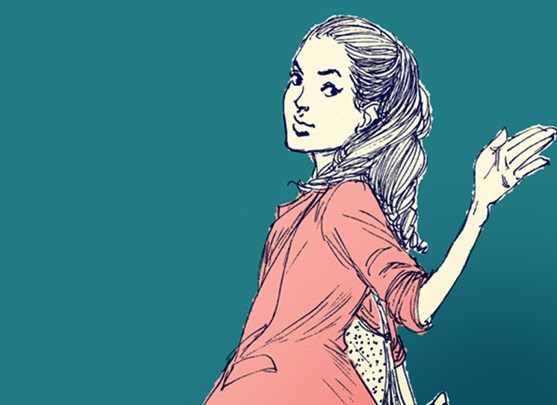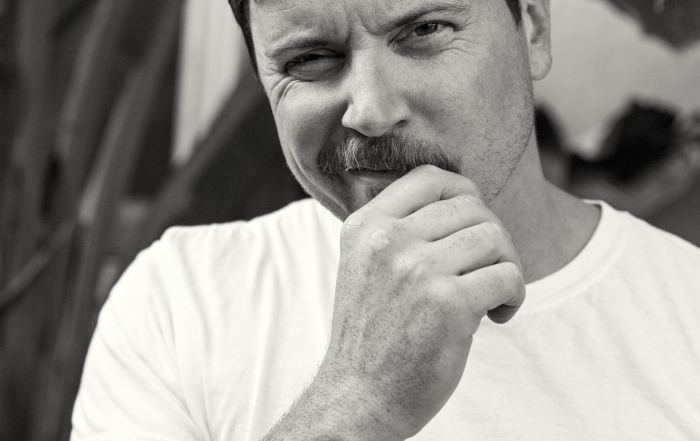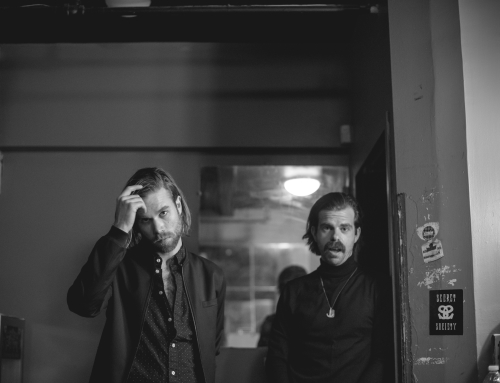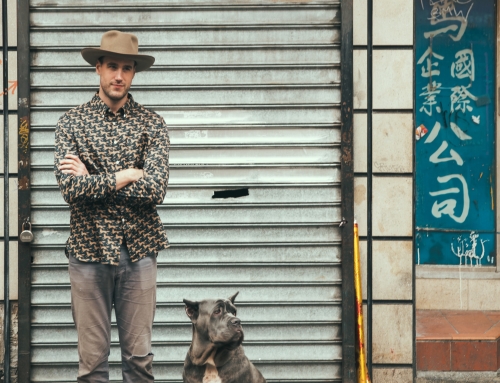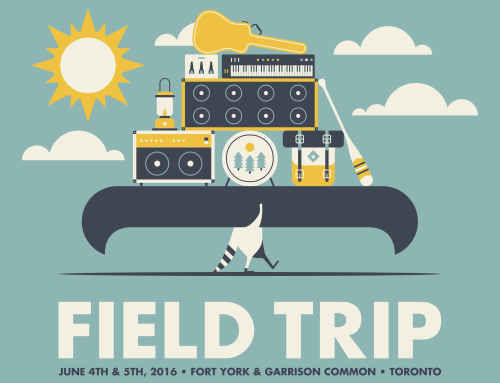In Amy Chua’s New York Times bestseller, Battle Hymn of the Tiger Mother, the rigid structure, critical atmosphere and culture clash characterizing conservative Chinese households in North America was laid bare for the world to scrutinize. A controversial book (particularly in mommy circles), while some championed Chua’s enthusiasm for begetting high-achievers, others viewed her approach to parenting as overbearing at best.
Flash forward 5 years after the book’s original publication date, and there’s a new voice adding to the conversation sparked by Chua’s theories—a voice accompanied by a musical crescendo.
Her name is Foon Yap and she is a Canadian singer-songwriter. Her childhood was typical of a daughter raised in a traditional Chinese Catholic household. She started her classical music training early, at the age of 4, amidst a do-or-die climate that demanded she conform and excel, as instructed by the patriarchy. Resistant to the oppression of these conditions, the artist eventually reached a breaking point that would redirect her musical path, before it ultimately changed her life. “My album is about acknowledging my difficult past, so I can move forward,” she says of her recently released record, Palimpsest.
Composed of evocative lyrics that ascend with fervor as the tracks progress from the album’s melancholy opening song, “Woolf and Plath” to its haunting title number towards the record’s end, Palimpsest represents an embolden sound off. It is a musical documentary of the many year’s FOONYAP (the artist’s stage name) spent as a virtual “outsider” in her own life, conforming to no avail and desperate for acceptance. As the musician shares, the album’s songs had been percolating inside her for some time before they came to the surface. Now, to hear them on Palimpsest, is therapeutic.
“I was afraid of how others would judge me,” she explains, before revealing a pre-Palimpsest fear that listeners might find her music too emotional an overly sensitive, in an almost “childlike” way, as she puts it. “But I pushed forward,” the musician declares. “I had to surface, because it wasn’t others holding me back—it was my own thoughts!”
Incandescent for the very reasons FOONYAP had so long clung to uncertainty, the Calgary-based artist’s new album has the grit of early PJ Harvey with the experimental mystic of Sonic Youth’s Washing Machine. It is a diary of solemnity and passion that speaks to the thinking behind the musician’s stage name: a mere uniting of her first and last name, written in declarative all caps. The name—the base—is the same, it’s the conformation that has been altered. “My music conveys a reconciliation with my roots. The classical music, the Chinese-Catholic heritage—it’s all still there, integrated into my own style,” she asserts. “I [am] embracing parts of myself those systems taught me to be afraid of.”
Currently playing a string of shows across Canada with performances in select U.S cities, FOONYAP takes a moment to speak to FILLER about her musical journey and the crossroads it led to on the path to Palimpsest.
Your musical beginnings are quite different than your current path, was this shift in style something of a transformative coming of age moment?
Yes… but a slow and arduous maturation. My shift from classical music to the music I make now mirrors my search for myself.
Your lyrics feel very personal, especially with the way your voice and music draws in its listener. Do you always write from personal experience or do you look outside of yourself for inspiration, as well?
Both! Though, it’s impossible for me to separate the two—even when I look outside, I use my own eyes. Feminism, my Chinese heritage, Zen, and sexuality inspire me.
Given how personal your music feels, do you find songwriting therapeutic?
Yes… and it can hurt terribly. For example, to write my title track, I had to go back and relive adolescent feelings of alienation and shame. But unlike my past, those feelings were reconciled through song.
I imagine the process of songwriting is more difficult when it is so emotionally based?
For this album, yes. I didn’t want to face my feelings because they were painful! But I had no choice—I had to confront them to let them go.
How would you describe the mood of Palimpsest.
Introspective, dark, foreboding. There’s also a quiet acceptance of suffering as elemental to life. A “palimpsest” is a manuscript in which traces of the original can still be found.
Your new album has a very cinematic quality to it, are you drawn to drama as an artist?
Yes. I’m an intensely emotional person, and I prefer my actions to have deep meaning.
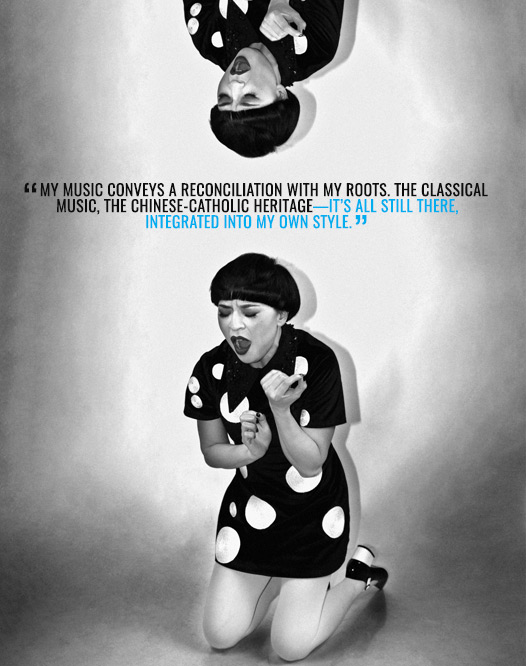
You get a sense of that from the passion in your music. I understand you have collaborated with filmmaker Anne Koizumi on the music for her films. Has working in film always been something you were interested in?
Yes, but the soundtrack work is a surprising turn! I thought I would be an actress instead.
Second career, perhaps? How would you describe the relationship between the music in a film and the action?
Music enhances the emotional tone of the film, imbuing the action with significance.
Do you think that music is as much about storytelling as films are? Is that what makes the two disciplines feel so intrinsically linked?
Yes! I’m experiencing this now. I was quite reluctant to share the stories behind Palimpsest because they were so personal and tender, but people want to know. [And,] when they hear about my struggles, they remember their own. My songs become theirs.









